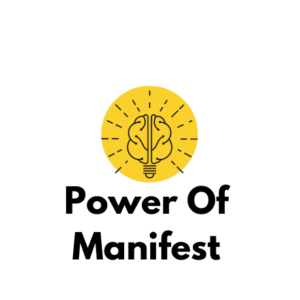Mindset and beliefs are fundamental aspects of an individual's mental and emotional framework, shaping how they understand and navigate the world.


Mindset and beliefs are fundamental aspects of a person's psychological and emotional framework, shaping how they perceive and navigate the world. Understanding the interaction between mindset and beliefs is crucial for personal growth, resilience, and achieving targets.
Mindset:
Fixed Mindset:
Description: Individuals with a hard and fast mindset imagine that their talents, intelligence, and skills are fastened traits. They may avoid challenges and consider effort as fruitless.
Impact: Fixed mindset people might battle with setbacks, as they see them as a mirrored image of their inherent abilities. This mindset can limit private and professional growth.
Growth Mindset :
Description: Those with a progress mindset consider that skills can be developed by way of effort and studying. Challenges are seen as opportunities to study and grow.
Impact: A growth mindset fosters resilience, a love for learning, and a willingness to embrace challenges. It contributes to non-public development and adaptableness.
Beliefs:
Core Beliefs:
Description: Core beliefs are elementary, ingrained beliefs about oneself, others, and the world. They typically form the idea of one's self-concept and worldview.
Impact: Core beliefs influence self-esteem, decision-making, and total well-being. Positive core beliefs contribute to a wholesome mindset.
Limiting Beliefs:
Description: Limiting beliefs are adverse or self-sabotaging beliefs that constrain private growth. They often come up from past experiences or adverse self-perceptions.
Impact: Limiting beliefs can create obstacles to success, hinder self-confidence, and prevent individuals from pursuing opportunities.
Empowering Beliefs:
Description: Empowering beliefs are optimistic, affirming beliefs that support personal growth and well-being. They are intentional and contribute to a constructive mindset.
Impact: Empowering beliefs enhance confidence, motivation, and resilience. They empower individuals to overcome challenges and pursue their goals.
Interaction between Mindset and Beliefs:
Feedback Loop:
Description: Mindset and beliefs affect each other in a continuous feedback loop. The method people perceive the world shapes their beliefs, and these beliefs, in flip, influence their mindset.
Impact: Positive beliefs can reinforce a progress mindset, making a cycle of positive thinking and personal development.
Behavioral Influence:
Description: Mindset and beliefs affect habits. They have an effect on how individuals method challenges, make selections, and reply to setbacks.
Impact: A positive mindset and empowering beliefs contribute to resilient and adaptive behavior, fostering success in numerous elements of life.
Cultivating a Positive Mindset and Empowering Beliefs:
Self-Awareness:
Develop self-awareness by reflecting on your ideas, beliefs, and reactions. Recognize patterns which may be influencing your mindset.
Challenge Limiting Beliefs:
Actively challenge and reframe limiting beliefs. Question their validity and exchange adverse ideas with positive and empowering ones.
Continuous Learning:
Embrace a progress mindset by committing to continuous studying and seeking opportunities for private and professional improvement.
Positive Affirmations:
Practice constructive affirmations regularly to strengthen empowering beliefs. Affirmations can reshape thought patterns and contribute to a positive mindset.
Surround Yourself with Positivity:
Choose environments and relationships that help a constructive mindset. Surrounding yourself with positive influences can enhance your general outlook.
Seek Support:
Seek steerage from mentors, coaches, or psychological health professionals to navigate and transform limiting beliefs. External help can present valuable insights and methods.
In abstract, mindset and beliefs are interconnected elements of an individual's psychological framework. Cultivating a constructive mindset and empowering beliefs involves intentional efforts, self-reflection, and a dedication to personal development. By understanding and actively shaping these elements, individuals can enhance their resilience, adaptability, and total well-being..
